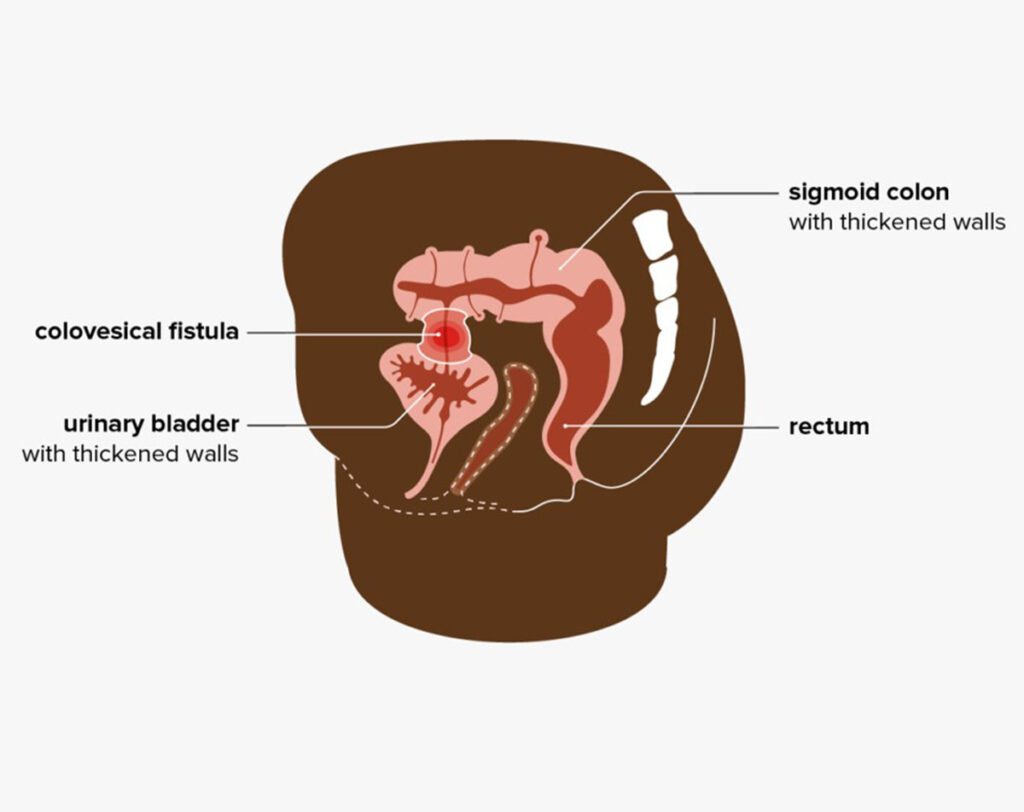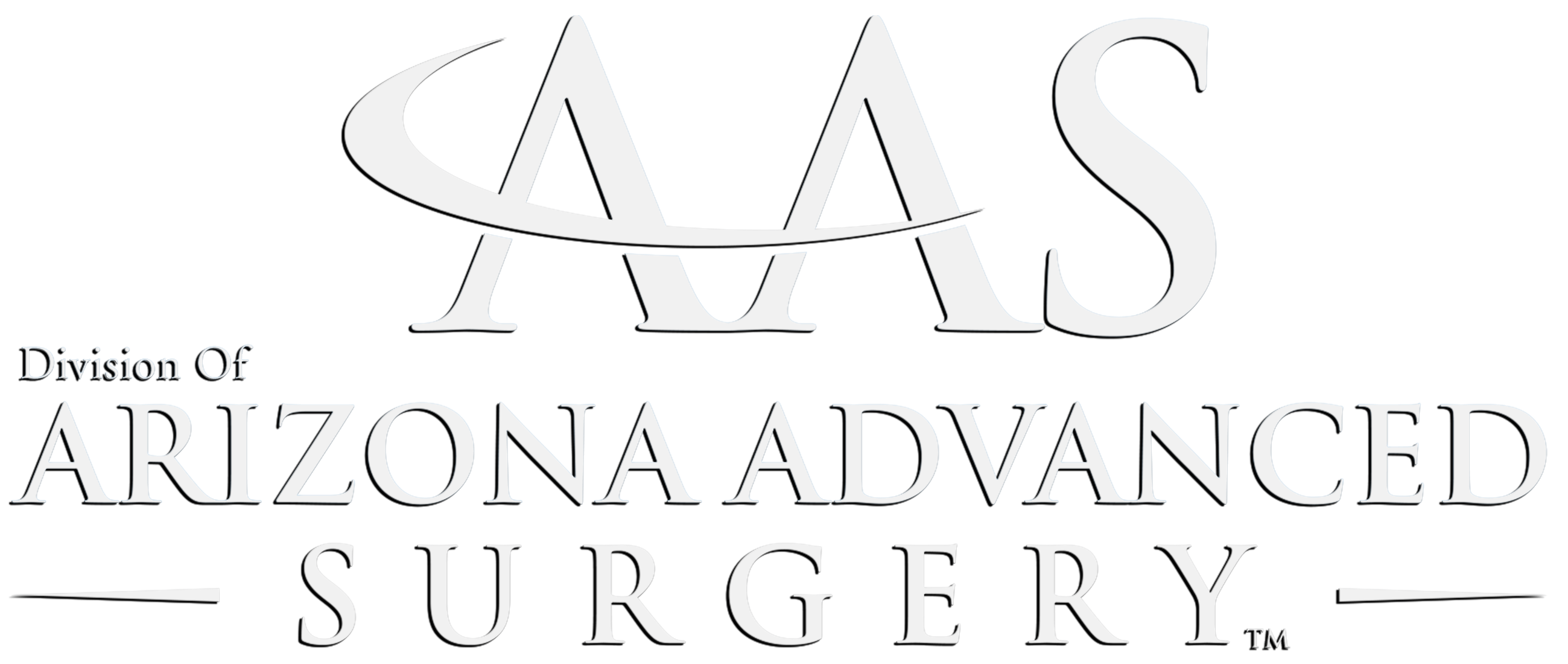Conditions And Treatments
Home / Areas Of Specialty / Colovesical Fistula
Colovesical Fistula ( CVF )
Colovesical fistula is an abnormal connection between the colon and urinary bladder. Although there can be different etiologies but the most common one includes diverticulitis, cancer or malignancy of colon or urinary bladder. Besides, other less common reasons are history of previous surgery or radiation in the abdominal and pelvic area and history of colitis or inflammatory bowel disease.

Symptoms And Signs
You may have symptoms like recurrent urinary tract infections, presence of air bubbles or stool particles in the urine, abdominal pain, urinary frequency and urgency and blood in the urine. As a matter of fact, your physician may advise you to see a urologist surgeon because of recurrent urine infections.
Occasionally, patients with the colo-vesical fistulas can present with the severe urinary tract infections. Basically, this can lead to sepsis which is a serious condition leading to fever, shock and rapid worsening of condition.
Diagnosis And Treatment Of Colovesical Fistula
Common way of diagnosis is by clinical history, physical evaluation and use of certain diagnostic modalities. Most common tests include use of CT scan, colonoscopy and cystoscopy evaluation. Moreover, a CT scan may show air bubbles within the urinary bladder. Also urologist may notice abnormality within the urinary bladder and may be able to visualize the fistula site with cystoscopy procedure. Recurrent diverticulitis is a very common cause of colovesicle fistula formation.
Finally, treatment of colovesicle fistula includes use of antibiotics as first modality and control of acute infection. Subsequently, you may need a surgical intervention in the form of resection of the affected colon or a possible bladder repair. Trained colorectal Surgeons can usually perform this surgery using minimally invasive method with the help of a robotic or laparoscopic techniques. Furthermore, a colostomy procedure is an option if there is a risk of anastomotic leak, severe inflammation, scarring, infection with abscess, history of radiation or steroid use. However, surgery usually requires hospitalization.
What is a colon and Rectal Surgeon? Is Dr Singh a Board-certified
Colorectal surgeon? and where does he perform his procedures.
Colon and rectal surgeons are experts in the surgical and non-surgical
treatment of diseases of the colon, rectum, and anus. They have completed advanced
surgical training in the treatment of these diseases, as well as full general
surgical training. They are well versed in the treatment of both benign and
malignant diseases of the colon, rectum, and anus and are able to perform
routine screening examinations and surgically treat conditions as and if
needed. Dr Singh is a double board certified in Colon and Rectal Surgery and
General surgery. His practice is located in Phoenix, Glendale and Scottsdale,
AZ.
For more information on diverticulitis and colovesical fistula please visit:
Diverticular Disease Expanded Version | ASCRS (fascrs.org)
Colovesicular Fistula – StatPearls – NCBI Bookshelf (nih.gov)
Home – Colon & Rectal Care Center of Phoenix (colorectaldoc.com)Furthermore, a colostomy pr

